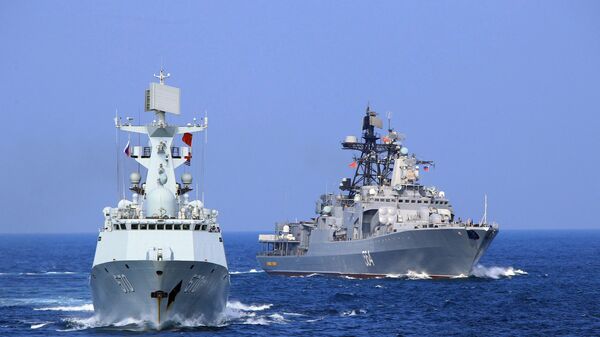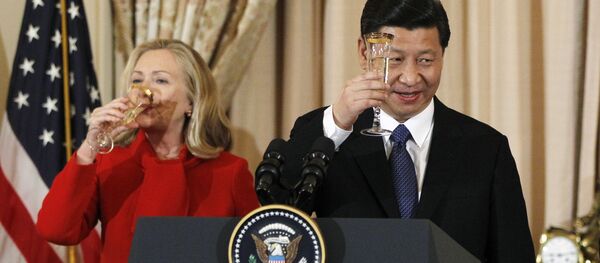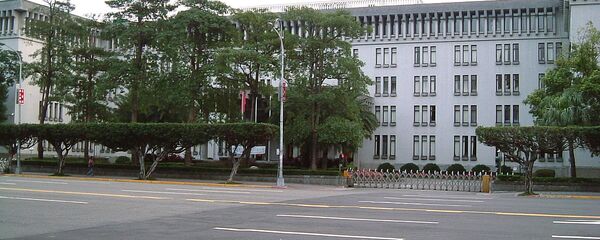"The fact that both countries started to talk about joint military activity is a very serious development," Vasily Kashin, a senior fellow with the Russian Academy of Science’s Far Eastern Studies Institute, told the agency.
Moscow and Beijing are united in their opposition to the proposed deployment of the US THAAD anti-missile defense system in South Korea, which they see as a threat to regional stability and national security.
Washington and Seoul have declared the THAAD deployment necessary to deter North Korea from further developing its nuclear program.
"The threat from US missile defense pushes both China and Russia closer to each other. For Russia and China, the policy of containment is the containment of the US first of all," Vasiliy Kashin said.
Last week military expert Viktor Baranets told RIA Novosti that the planned deployment of the US THAAD anti-missile system in Europe and East Asia is part of Washington's strategy to "undermine the system of global strategic stability in order to carry out its globalistic doctrine of world domination."
In Europe, the US switched on an $800 million missile defense shield in Romania in May this year, part of its "umbrella" of missile defense stretching across NATO Europe. Washington claims the ballistic missile defense site is necessary to counter nuclear missiles from Iran, but that dubious explanation is rejected by Moscow in light of last year's agreement between the P5+1 group of countries and Iran on its nuclear program.
"China has declared itself an ally in the organization of anti-missile defense, directed against the missile shield which the US is trying to deploy in South Korea. China has said openly that deploying the system will disturb Beijing. Today we can say there is an 'anti-American anti-missile tandem' between Moscow and Beijing, which is a very serious global factor," Baranets said.
In addition to alarm about Washington's ambitions to maintain ballistic missile defense systems across Europe and Asia, China and Russia are also concerned about the increased US naval presence in Asia.
Last month the two countries carried out a joint naval exercise in the South China Sea, which was perceived as a show of Russian support for Beijing amid the growing activity of the US navy in the region.
On Monday Rodrigo Duterte, president of the Philippines, a traditional US ally, told a Hong-Kong based television channel that he would also consider holding joint military exercises with China or Russia, instead of the US.
"Yes, I will. I have given enough time for the Americans to play with the Filipino soldiers," said Duterte, who begins a four-day visit to Beijing this week.




